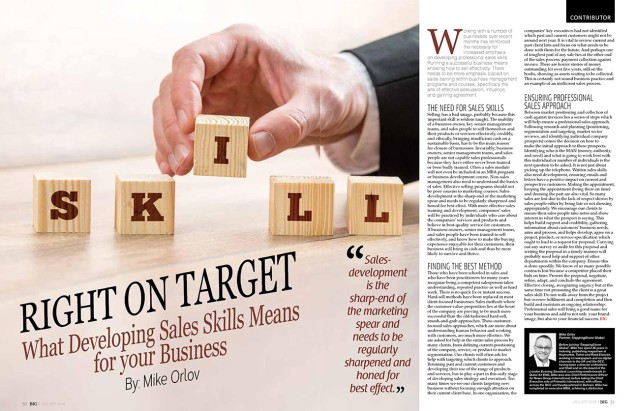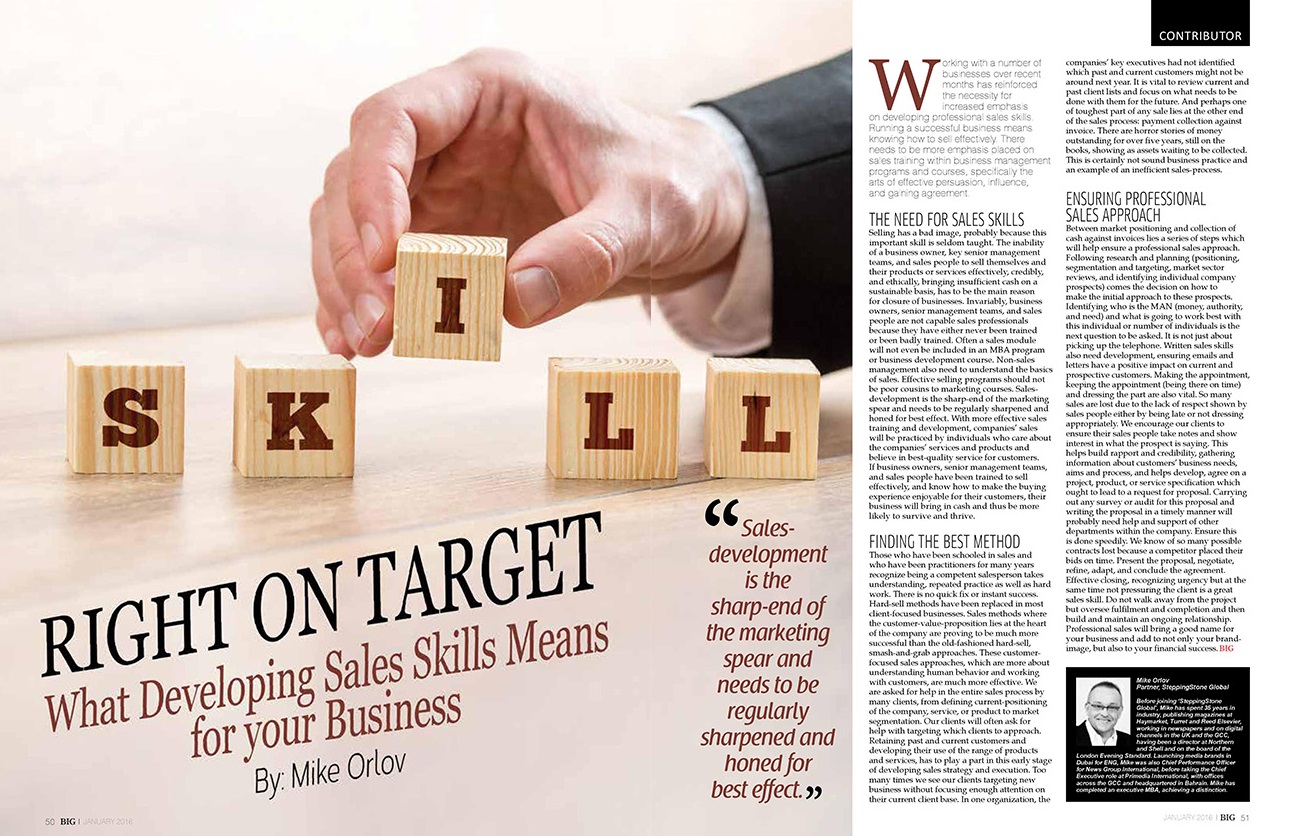Working with a number of businesses over recent months has reinforced the necessity for increased emphasis on developing professional sales skills. Running a successful business means knowing how to sell effectively. There needs to be more emphasis placed on sales training within business management programs and courses; specifically the arts of effective persuasion, influence and gaining agreement.
Selling has a bad image; probably because this important skill is seldom taught. The inability of a business owner, key senior management teams and sales people to sell themselves and their products/services effectively, credibly and ethically, bringing insufficient cash on a sustainable basis, has to be the main reason for closure of businesses.
Invariably business owners, senior management teams and sales people are not capable sales professionals because they have either never been trained or been badly trained. Often a sales module will not even be included in an MBA program or business development course; non-sales management also need to understand the basics of sales. Effective selling programs should not be poor cousins to marketing courses; sales-development is the sharp-end of the marketing spear and needs to be regularly sharpened and honed for best-effect.
With more effective sales training and development, companies’ sales will be practiced by individuals who care about the companies’ services and products and believe in best-quality service for customers. If business owners, senior management teams and sales people have been trained to sell effectively, and know how to make the buying experience enjoyable for their customers, their business will bring in cash and thus be more likely to survive and thrive.
Those who have been schooled in sales and who have been practitioners for many years recognize being a competent salesperson takes understanding, repeated practice as well as hard work. There is no quick fix or instant success.
Hard-sell methods have been replaced in most client-focused businesses. Sales methods where the customer-value-proposition lies at the heart of the company are proving to be much more successful than the old-fashioned hard-sell, smash-and-grab approaches. These customer-focused sales approaches, which are more about understanding human behavior and working with customers, are much more effective.
We are asked for help in the whole sales-process by many clients, from defining current-positioning of the company, service or product to market-segmentation. Our clients will often ask for help with targeting which clients to approach.
Retaining past and current customers, developing their use of the range of products and services, has to play a part in this early stage of developing sales strategy and execution. Too many times we see our clients targeting new business without focusing enough attention on their current client base. In one organization, the companies’ key executives had not identified which past and current-customers might not be around next year; vital to review current and past client lists and focus on what needs to be done with them for the future.
And perhaps one of toughest part of any sale lies at the other end of the sales-process; payment-collection against invoice. There are horror-stories of monies outstanding for over five years, still on the books showing as assets waiting to be collected; certainly not sound business-practice and an example of an inefficient sales-process.
Between market-positioning and collection-of-cash against invoices lies a series of steps which will help ensure a professional sales approach. Following research and planning (positioning, segmentation and targeting, market-sector reviews and identifying individual company-prospects) comes the decision on how to make the initial approach to these prospects.
Identifying who is the MAN (money, authority and need) and what is going to work best with this individual / number of individuals is the next question to be asked. It is not just about picking up the telephone; written sales-skills also need development, ensuring emails and letters have a positive impact on current and prospective customers.
Making the appointment, keeping the appointment (on time) and dressing the part are also vital; so many sales are lost due to the lack of respect shown by sales people either by being late or not dressing appropriately. We encourage our clients to ensure their sales people take notes and show interest in what the prospect is saying. This helps build rapport and credibility, gathering information about customers’ business-needs, aims and process and helps develop/agree a project/product/service specification which ought to lead to a request for proposal.
Carrying out any survey or audit for this proposal and writing the proposal in a timely manner will probably need help and support of other departments within the company; ensure this is done speedily. We know of so many possible contracts lost because a competitor placed their bids on time.
Present the proposal, negotiate/refine/adapt/conclude the agreement. Effective closing, recognizing urgency but at the same time not pressurizing the client is a great sales skill. Do not walk away from the project but oversee fulfilment and completion and then build and maintain an ongoing relationship. Professional sales will bring a good name for your business and add to not only your brand-image, but will also result in financial success.


